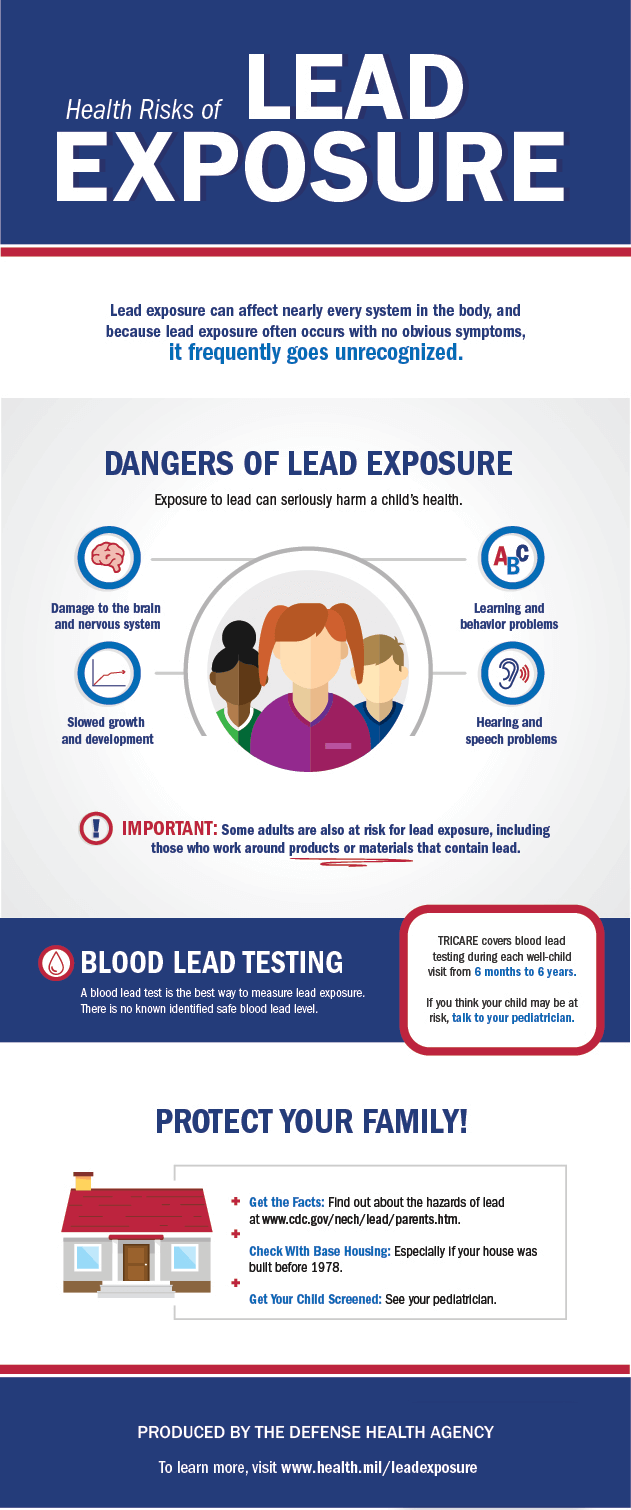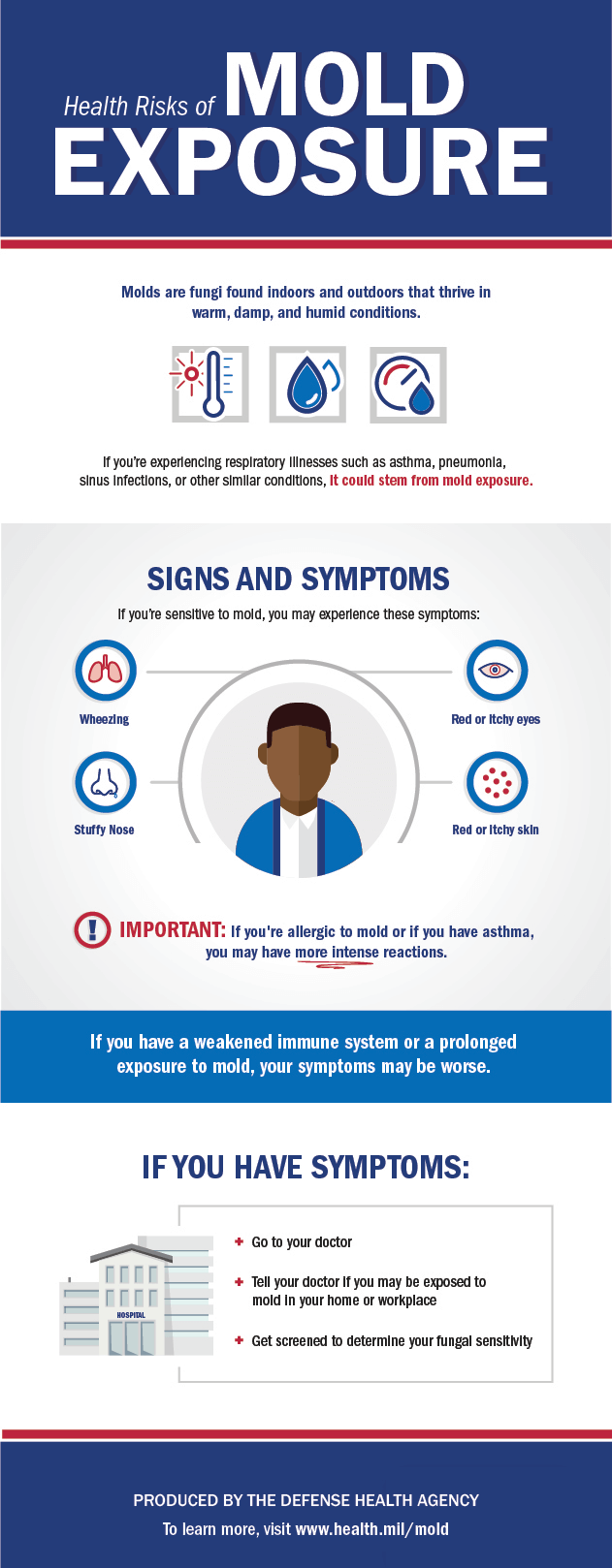
Your environment and your body: How exposure to mold and lead may impact your health

Depending on where your provider is located, you may seek care at a military hospital or clinic or from your TRICARE-authorized provider. (Courtesy photo)
A healthy environment is important to the health of your body. Possible exposure to lead or damp, moldy indoor spaces may impact your health. TRICARE covers the screenings, services, and supplies needed to diagnose and treat allergies, asthma, and respiratory illnesses. Blood lead level screenings are available for beneficiaries who are at a high risk for lead exposure.
When exposed to lead, multiple systems in the body can be affected. However, the symptoms aren’t always obvious. More noticeable symptoms, like weakness or memory loss, result from very high exposure to lead in a short period of time. A blood lead test is the only way to determine if your child has a high lead level. The test will only provide information about recent exposures. Speak to your pediatrician for concerns regarding possible past lead exposure.
Mold is a type of fungus that is found almost everywhere, without impact to most people. But spores can grow and multiply in damp, humid places in your home or office.
“Mold spores may be released into the air and inhaled,” said U.S. Public Health Service Capt. Andrew Plummer, a senior physician advisor, at the Defense Health Agency. “This may trigger a variety of symptoms, or none at all, depending on your sensitivity.”
For some people, exposure to molds can lead to symptoms such as stuffy nose, wheezing, and red or itchy eyes, or skin. People who have asthma or who are allergic to mold may have more intense reactions.
If you have symptoms, visit your doctor and mention that you live or work in an area where you may be exposed to mold. Depending on where your provider is located, you may seek care at a military hospital or clinic or from your TRICARE-authorized provider.
“We want our beneficiaries to know that the Military Health System supports those who may experience adverse environmental health symptoms,” said Dr. Terry Adirim, deputy assistant secretary of defense for health services policy and oversight.
If you believe you have symptoms related to mold exposure, you may also use the Military Health System Nurse Advice Line, at www.mhsnurseadviceline.com. You can chat, video chat, or find the phone number to call and speak with a registered nurse to get health advice.
Learn more about mold and steps you can take if there is mold in your home.
You can find more information about exposure to mold and lead on the Military Health System website.
Lead Exposure
Infographic
3/27/2019

This infographic discusses the dangers of lead exposure and how to protect your family from it
Mold Allergies
Infographic
3/27/2019

This infographic describes what mold is and describes the signs and symptoms of a mold allergy


































No hay comentarios:
Publicar un comentario